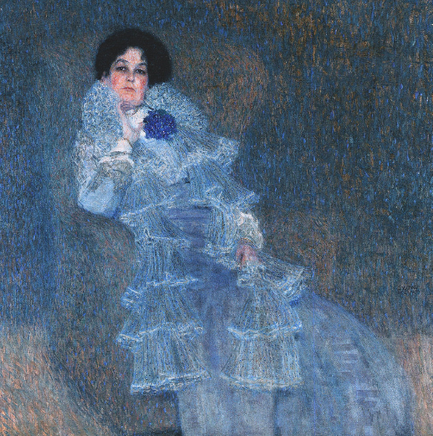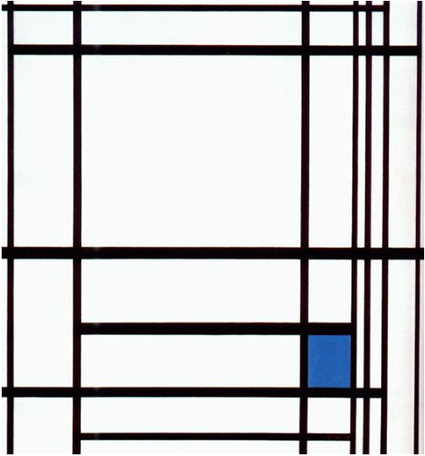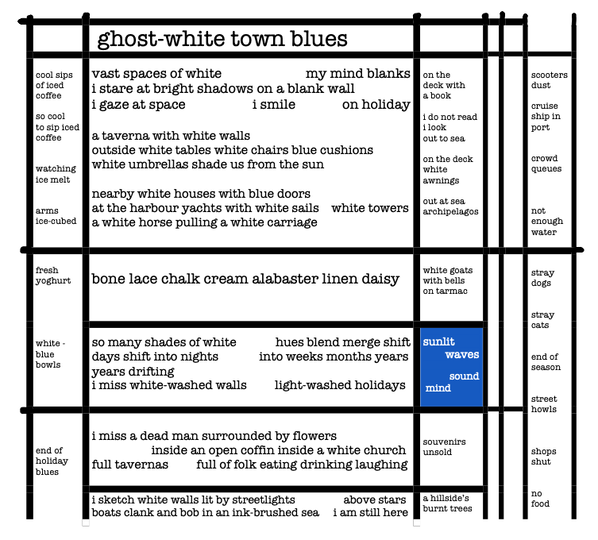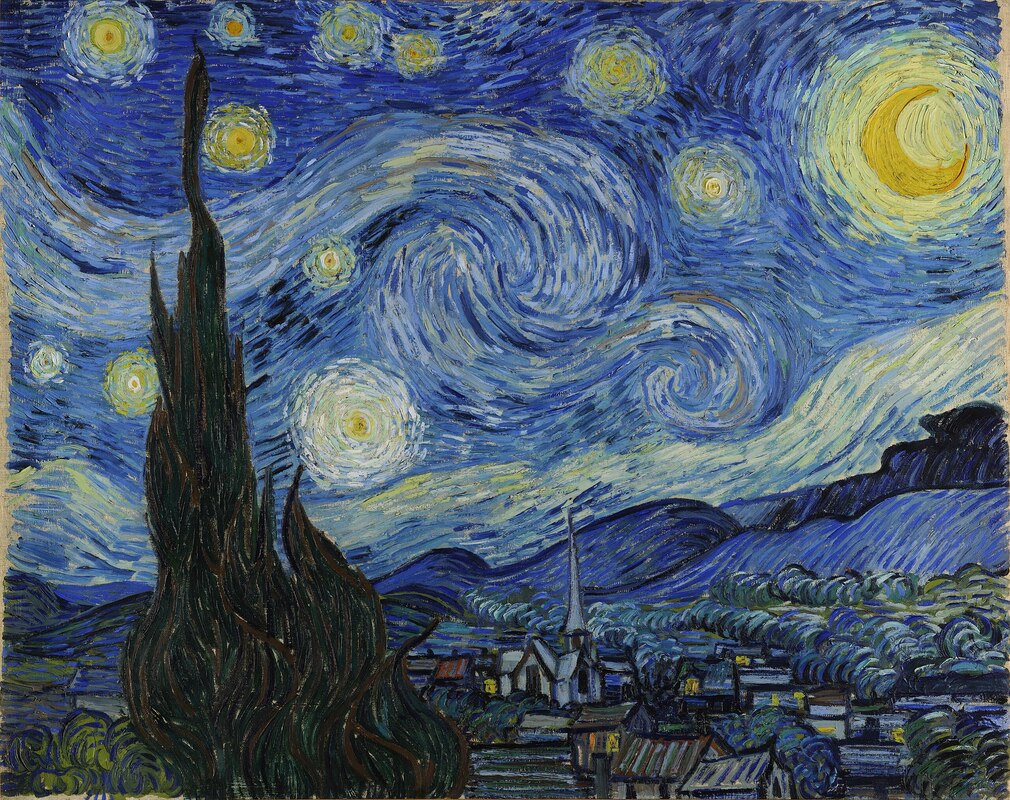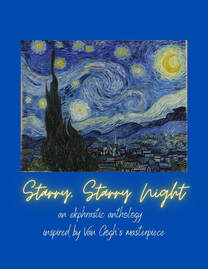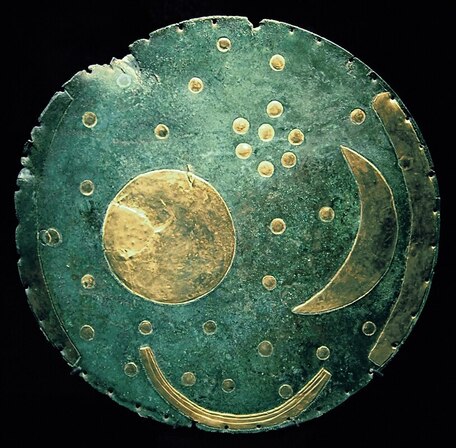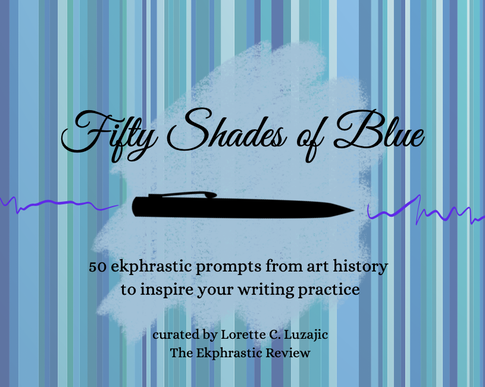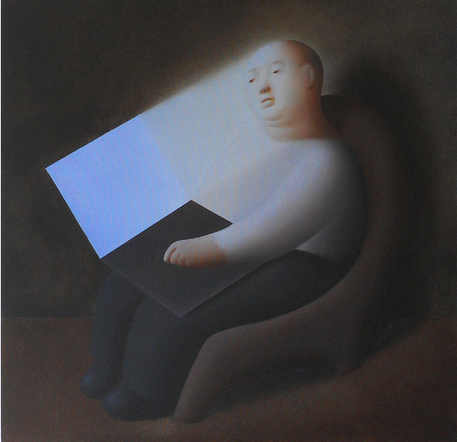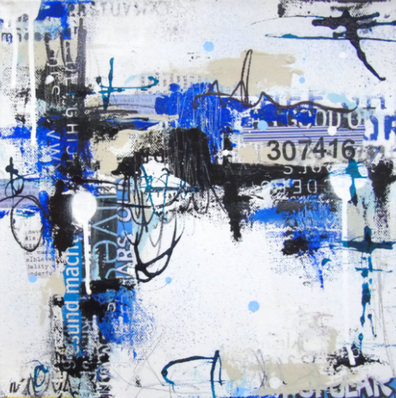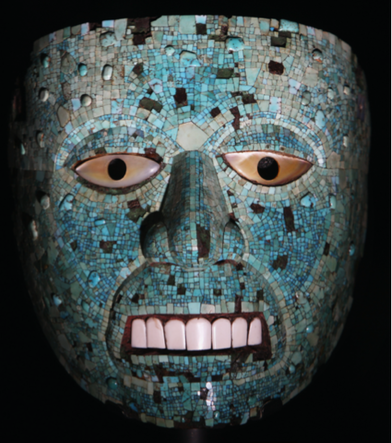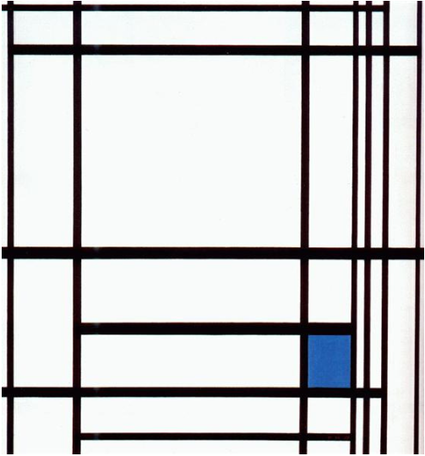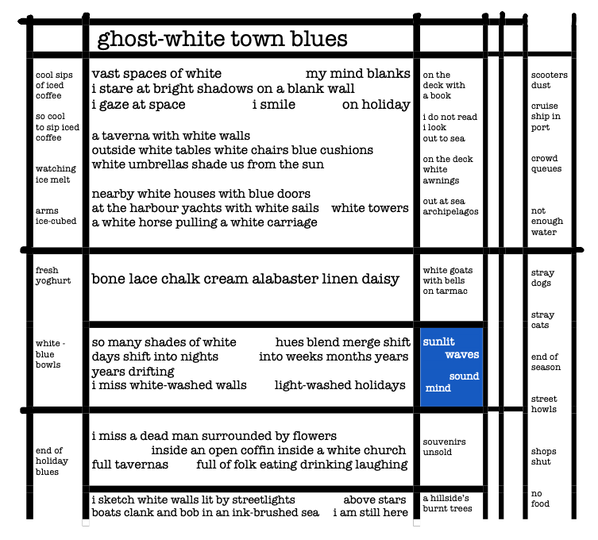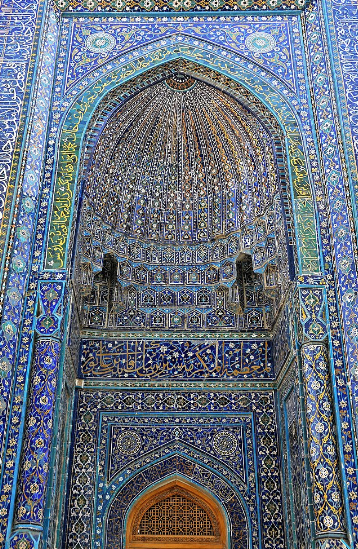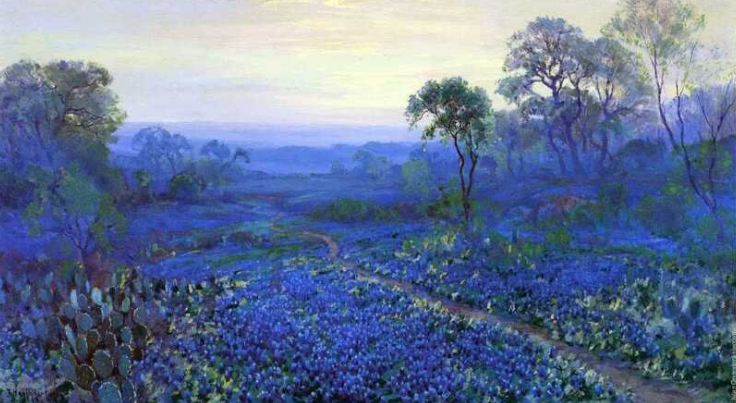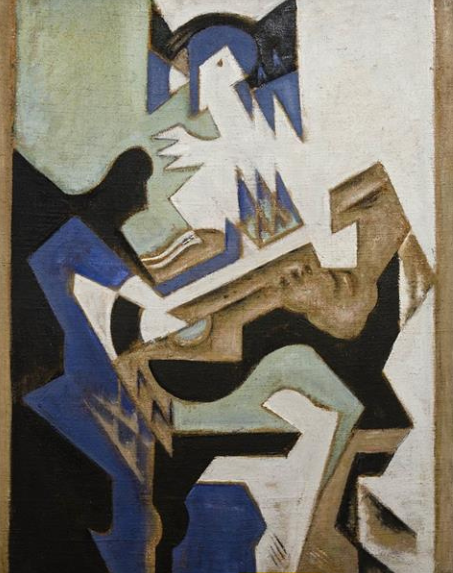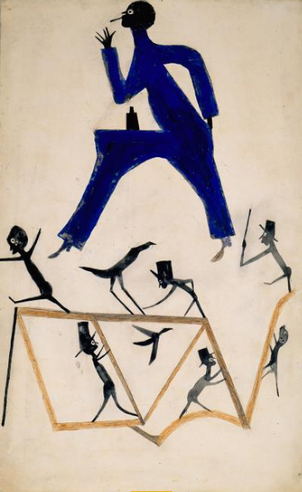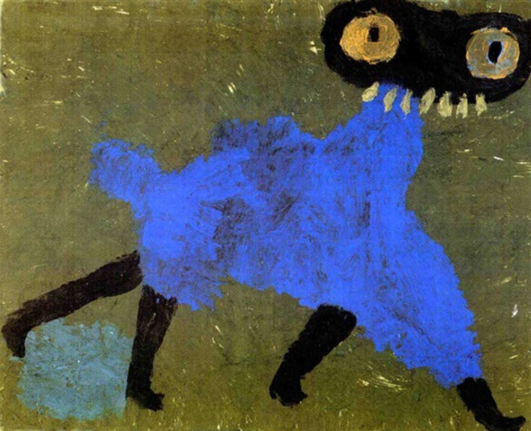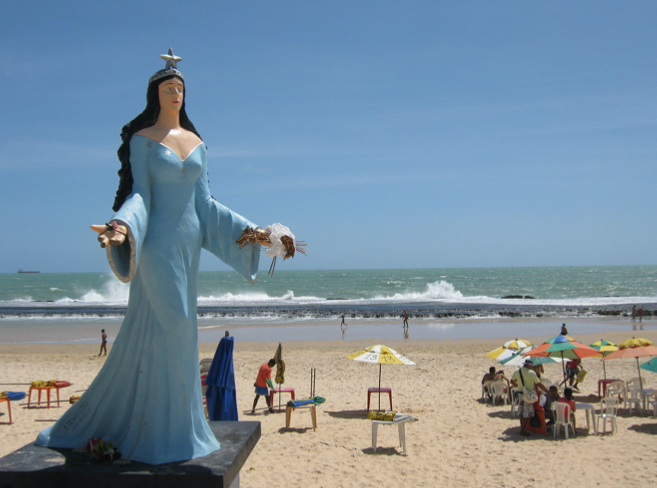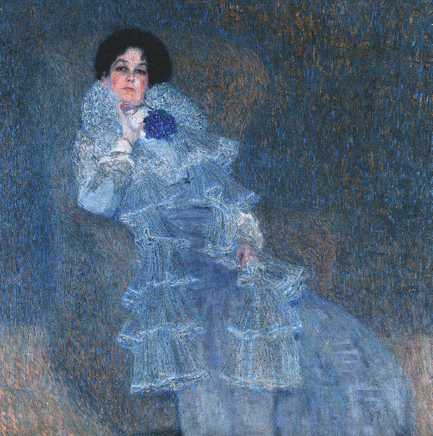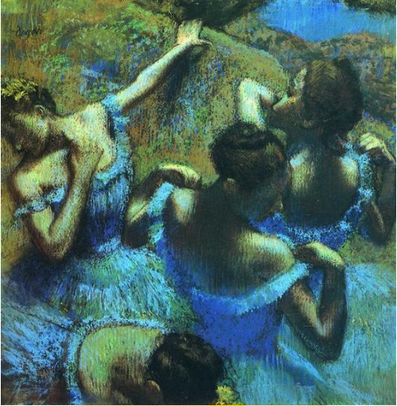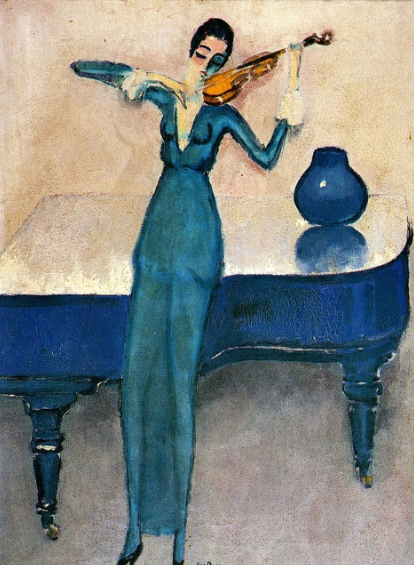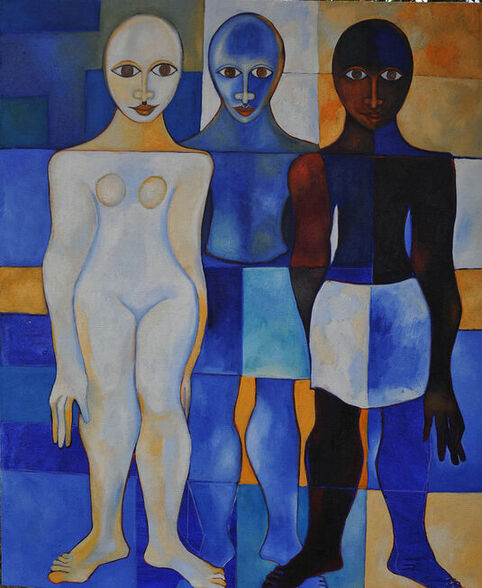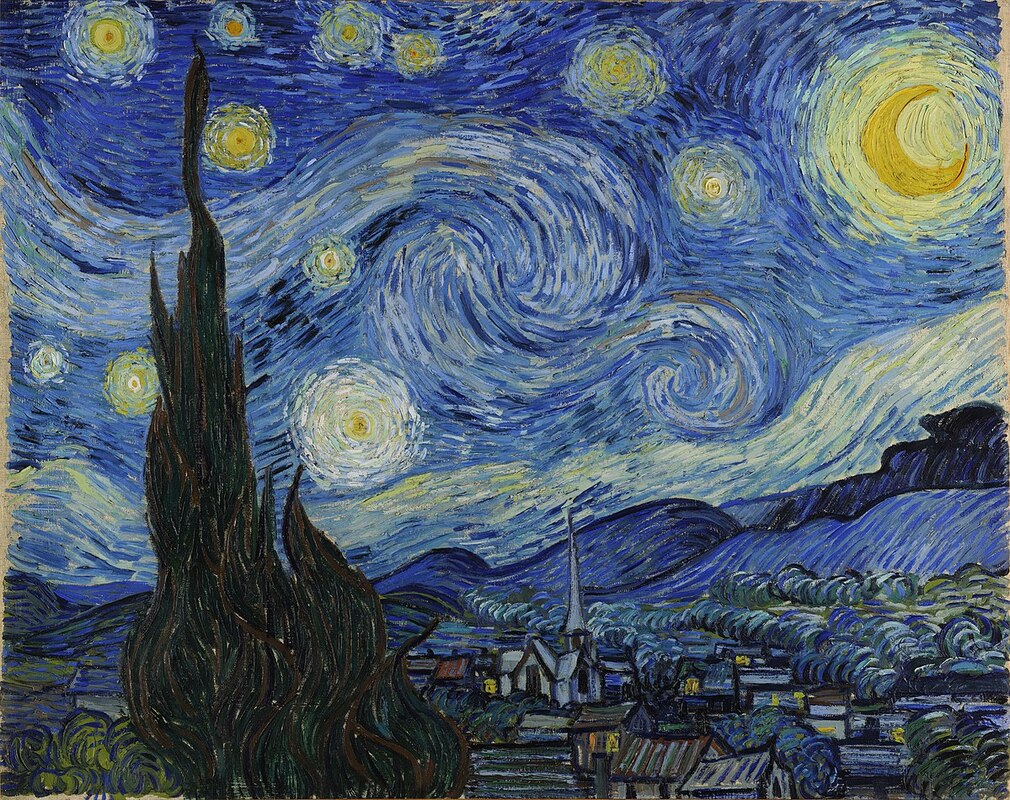|
Our Fifty Shades of Blue contest is officially over! Please join me in congratulating Lynn Aprill, winner in the flash fiction category, and Dorothy Burrows, winner in the poetry category. Thank you to every single participant for your incredible creativity! Thank you to our finalists- please click here to see the writers, and read all of the finalist poems and stories. Congratulations Lynn and Dorothy! Both winners will also receive $100 prize. Please share this page on your social media. Thank you everyone! The Message At first glance, she is all repose, lounging in the mottled chair, one hand resting on the ruffles of her evening dress, the shadows of night having crept into the corners, the corsage of cornflowers, a bleuet, pinned above her heart. The flowers had arrived with a missive which she slipped open, a smile still playing at the corners of her mouth. Then she slowly folded into the chair, first shock, then despair visiting her face. Now resignation has come to sit shiva on the death of her dream, suppressed rage blazing her cheeks. The note lies neglected, just out of reach on the cold floor, it’s brief message already burned into her brain: Elizabeth, he threatened to take the children if I didn’t return to him. I can’t lose them. I’m sorry. Lynn Aprill Award-winning poet and educator Lynn Aprill has published work recently in Bramble, Willows Wept Review, Quartet, and others. Channeling Matriarchs, her first chapbook with Finishing Line Press, was released in August 2021. She resides with her husband and various dogs on 40 acres in Northeast Wisconsin. Her work can be found at https://lynnaprill.weebly.com/ Dorothy Burrows
Dorothy Burrows enjoys writing flash fiction, poetry and short plays. Over the last twelve months, her poems have appeared in various online and print journals including The Ekphrastic Review. Blue used to be her favourite colour.
0 Comments
Editor’s Note The torrent of entries for Starry Night took me off guard. I was expecting there would be many more than usual, because Van Gogh is an evergreen ekphrastic inspiration, and because what poet or writer isn’t moved by his exquisite work and life? But I wasn’t prepared, even so. Although I selected almost fifty entries, I left more out in the cold than ever. At least ten of you sent multiple pieces this time, with one person sending eleven poems on this painting! Choosing which works to publish for any aspect of this journal is the hardest part. I find it so difficult that I publish extravagantly, every day, and two special editions a month. This means we publish well over a thousand poems and stories every year, a time-consuming habit, but one with so many rewards. And yet that is probably not even five percent of the ekphrases we receive. Art moves us, it helps us find the words. Thank you to every one. To those whose works appear here, and to those who don’t. This is a very special community, a worldwide circle writing about art and sharing the riches with each other. This is the first time we have made an ebook from the challenge responses. This is an experiment, to see how the format works, as well as a way for you to invite the world to our writers. Please share this ebook freely. It is free, but extremely valuable. Please share it with every reader you know, and anyone who loves art. This booklet is an invitation from all of us into the world of The Ekphrastic Review. Invite more readers to us, so they can read these writers, and all of our writers, those in our archives, and those ahead. Thank you. love, Lorette FREE DOWNLOAD- take it and share it!!!!
Join us for biweekly ekphrastic writing challenges. See why so many writers are hooked on ekphrastic! We feature some of the most accomplished, influential poets writing today, and we also welcome emerging or first time writers and those who simply want to experience art in a deeper way or try something creative. The prompt this time is Nebra Sky Disk, found in Germany with uncertain origins. Deadline is March 4, 2022 . You can submit poetry, creative nonfiction, flash fiction, microfiction, or any other form creative writing you like. 1000 words max please. ** The Rules 1. Use this visual art prompt as a springboard for your writing. It can be a poem or short prose (fiction or nonfiction.) You can research the artwork or artist and use your discoveries to fuel your writing, or you can let the image alone provoke your imagination. 2. Write as many poems and stories as you like. Send only your best works or final draft, not everything you wrote down. (Please note, experimental formats are difficult to publish online. We will consider them but they present technical difficulties with web software that may not be easily resolved.) Please copy and paste your submission into the body of the email, even if you include an attachment such as Word or PDF. 3. There is no mandatory submission fee, but we ask you to consider a voluntary donation to show your support to the time, management, maintenance, and promotion of The Ekphrastic Review. It takes an incredible amount of time to curate the journal, read regular and contest submissions, etc. Paying all expenses out of pocket is also prohibitive. Helping the editor share the time and expenses involved is very much appreciated. There is an easy button to click below to share a five spot through PayPal or credit card. Thank you. 4. USE THIS EMAIL ONLY. Send your work to [email protected]. Challenge submissions sent to the other inboxes will most likely be lost as those are read in chronological order of receipt, weeks or longer behind, and are not seen at all by guest editors. They will be discarded. Sorry. 5.Include NEBRA CHALLENGE in the subject line. 6. Include your name and a brief bio. If you do not include your bio, it will not be included with your work, if accepted. Even if you have already written for The Ekphrastic Review or submitted other works and your bio is "on file" you must include it in your challenge submission. Do not send it after acceptance or later; it will not be added to your piece. Guest editors may not be familiar with your bio or have access to archives. We are sorry about these technicalities, but have found that following up, requesting, adding, and changing later takes too much time and is very confusing. 7. Late submissions will be discarded. Sorry. 8. Deadline is midnight EST, March 4, 2022. 9. Please do not send revisions, corrections, or changes to your poetry or your biography after the fact. If it's not ready yet, hang on to it until it is. 10. Selected submissions will be published together, with the prompt, one week after the deadline. 11. Due to the demands of the increasing volume of submissions, we will no longer send out sorry notices or yes letters. You will see what poetry and stories have been selected when the responses are posted one week after the deadline. Understand that we value your participation as part of our ekphrastic community, but we can only choose a handful of the many entries we receive. 12. A word on the selection process: we strive for a balance between rewarding regular participants and sharing the voices of writers who are new to our family. We also look for a variety of perspectives and styles, and a range of interesting takes on the painting. It is difficult to reproduce experimental formatting, so unfortunately we won't choose many with unusual spacing or typography. 13. Please note, some selected responses may also be chosen for our newly born podcast, TERcets, with host Brian Salmons. Your submission implies permission should he decide to read yours. If that happens, you will be notified and sent a link to share. Thank you! 14. By submitting to The Ekphrastic Review, you are also automatically joining our subscribers' list. Your submission is your permission. We don't send Spam and we don't send many emails- you will not receive forty-four emails a day! We send a newsletter zero to two times a month, with hopes of more consistency in the future. It updates you on challenges, news, contests, prize nominations, ekphrastic happenings, prompt ebooks, the podcast, and more. You can cancel at any time, of course, but may find yourself back on the list after another submission. We hope you don't cancel because we like to stay in touch occasionally! 15. Rinse and repeat with upcoming ekphrastic writing challenges! 16. Please share this prompt with your writing groups, Facebook groups, social media circles, and anywhere else you can. The simple act of sharing brings readers to The Ekphrastic Review, and that is the best way to support the poets and writers on our pages! 17. Check this space every Friday for new challenges and selected responses, alternating weekly. ** This prompt is one of many fascinating moon-themed artworks included in our book of art prompts, Moon Gazing, to inspire your writing practice. The Fifty Shades of Blue ekphrastic flash fiction and poetry contest has come to a close. Today we are absolutely delighted to announce our finalists and share them with you. Please take a moment to share this page on your Facebook or Twitter- we want our writers to be read, and you can help with this simple social media click! Thank you to every single one of you who entered the contest. It was a rich experience to read through all of your stories and poems, and see how you were inspired by the imagery you were shown. As always, it was tough to choose finalists from so many wonderful perspectives and talents. Please join us in congratulating the finalists. The first place winner in each category will be announced soon and awarded their $100 prizes. Flash Fiction Finalists The Message, by Lynn Aprill Great-Great-Grandpa’s Teeth, by Finnian Burnett Façade of the Shirin-Bika Aga Mausoleum, by Kim Malcolm Young Man in the Moon, by Lisa Molina Disharmony, by Ronni Sandroff A Net of Blue Dancers, by Melinda Thomsen Poetry Finalists Built Blue, a Ghazal, by Laurel Benjamin ghost-white town blues, by Dorothy Burrows On Seeing Piet Mondrian’s Composition with Blue, by Ronnie Hess The Blue Coat, by Lynne Kemen Life Mosaic, by Jackie Langetieg Something Blue for My Daughter-in-Law: a Blessing, by Ellen Sazzman The Accountant Sets Aside Her Ledgers, by Alarie Tennille Wide/Blue/Cricket, by t.m. Thompson Iemanjá, Farol Desusado, by Bernardo Villela Young Man in the Moon The boy sits in the darkness, as the cold blue light shines from the screen of his laptop onto his now-bald head, and face with no brows or lashes. Massive amounts of medications he takes to kill the cancer cells in his blood also destroy the cells that protect him from illness. He can’t go to school, hang out with his friends, eat in a restaurant, see movies in theatres, or even leave his house, except to go to the hospital. He could, he is told, die from a common cold. So he sits, his laptop now his best friend, while the poison of life called ‘chemo’ kills his blood full of cancer, and the blue light reflects artificial light from his puffy swollen face back to the lifeless screen. They call it “Moon-face.” In the blue light of the darkness, he waits for the dawn of the warm and real light of the sun to shine upon him once again. For now, he is the Young Man in the Moon. Lisa Molina Lisa Molina is a writer/educator in Austin, Texas. Her chapbook, Don't Fall in Love with Sisyphus, published by Fahmidan Publishing & Co., will launch on 20 February, 2022. She has another chapbook forthcoming in March of 2023. Molina's words can be found in numerous publications, including The Ekphrastic Review, Beyond Words Magazine, Sparked Literary Magazine, Neologism Poetry Journal, and Bright Flash Literary Journal. Molina enjoys writing, singing, playing the piano, and spending time with her family. She now works with high school students with special needs, and loves teaching them the joys of reading and writing. Life Mosaic I Seasons are rectangular, winter white, spring blue summer richly black, and autumn counting down 307416; I see my life in this square—childhood loving the snow for angels, sled rides, ice caves, and sliding on ice skates, spring—blue all anticipation, bluebonnets, blue clematis, lavender lilacs, irises, gentian violets, new schoolmates; summer, seeming the longest season—20s to 50s, Growth abounds, careers explode, children are born, life is good; fall sneaks in like a stripper dropping a garment at intervals, approaching winter’s thin, frail, bare limbs. Squash and yams. II Composition is best in threes, but life is lived in quarters and residing in cities like Chicago’s Rush Street, El overhead, skyscrapers, Grant Park and the lions at the Art Institute—a photo of downtown resembles a mixed media collage, black, white, numbered, lined and circled—the blues come bleating from the horn in centre. Jackie Langetieg Jackie Langetieg is a past Jade Ring/Bard’s Chair winner and has published four chapbooks, two collections, a recent memoir, Filling the Cracks with Gold, and Snowfall, her most recent chapbook. She has had poems in Verse Wisconsin, Blue Heron Review, WI Academy of Sciences, Arts & Letters, and other journals and anthologies. She is a member of the Wisconsin Fellowship of Poets, and the Wisconsin Writers Association. She is retired from government civil service and lives in Verona, WI with her son. ** The Accountant Sets Aside Her Ledgers She pities people who bang their heads against the obstinate truth of numbers. No give. One right. Infinite wrongs. She finds math assuring, bankable, her workaday world. After hours, she closes the door on the accounts, knowing they never get into mischief on their own. On the metro, headphones lull her into the half math, half dream state of music. She closes her eyes, envisions clearings appearing between the stiff digits of her day. Can’t help smiling as loopy scribbles cover any stubborn numbers still marching in columns. She lets go of knowing all the answers, floats away in a vivid blue sky. Alarie Tennille Alarie Tennille graduated from the first coed class at the University of Virginia, where she picked up her B.A. in English, Phi Beta Kappa key, and black belt in Feminism. Retired now, Alarie delights in having more time to read, write poetry, and hang out at The Ekphrastic Review. Her latest poetry collection, Three A.M. at the Museum, has joined her earlier books on The Ekphrastic Bookshelf. Please visit her at alariepoet.com. Great-Great-Grandpa’s Teeth George Washington didn’t really have wooden teeth, but my great-great-grandfather did, and they grin at me from the dresser, the kitchen table, the mantle, or wherever I’ve moved them looking for that special spot where they won’t creep me out. But they’re all we have left, my mother said, crying, when she gave them to me shortly after the birth of my first child. It’s tradition, she said, and someday, you’ll pass them on to your oldest. Great-grandpa’s teeth click when I walk past. I tried to hide them in a closet but then I dreamed about them, giant chomping wooden teeth chasing me through the hallways of my house. Just get rid of them, my husband grumbles periodically, but I can’t—we all know what happened when my mom’s mom tried to throw them away, how she heard them laughing as she ran from the garbage, how she fell and sprained her ankle, how she cried as she crawled back to the trash can to retrieve the teeth, how sometimes, even into her old age, she whispers I’m sorry, I’m sorry whenever someone mentions teeth. So, they sit and watch and sometimes they chatter, and I lie awake in bed at night praying and praying for the birth of my first grandchild. Finnian Burnett Finnian Burnett teaches undergrad English and creative writing for an MFA program. Finn also leads classes on various aspects of writing flash. They’ve published in the Bath Flash Fiction Award Anthology, Daily Science Fiction, Flash Fiction Magazine, and more. In their spare time, Finn watches a lot of Star Trek and takes their cat for walks in a stroller. Finn lives in British Columbia with their wife and Lord Gordo, the cat. Finn can be found at www.finnburnett.com On Seeing Piet Mondrian’s Composition with Blue Surely, as his days became numbered, my father looked through the window, its interstices, shadows walking by, hallucinated, perceived one square of blue, an infinite sky. How else to explain his last words, about blue being such a lovely colour. Ronnie Hess Ronnie Hess is poet and essayist, the author of five poetry chapbooks and two culinary travel guides. She lives in Madison. Dorothy Burrows Dorothy Burrows enjoys writing flash fiction, poetry and short plays. Over the last twelve months, her poems have appeared in various online and print journals including The Ekphrastic Review. Blue used to be her favourite colour. Façade of the Shirin-Bika Aga Mausoleum When he was 12, Sayed's father took him out of school one day and drove him to the workshop of a tile maker on the other side of Kabul. The day after that, Sayed's Father boarded a train to Pakistan with a fake passport. He was Shi'ia and had worked for the government during the Soviet occupation. The Taliban would kill him for that. Sayed's father had always called him a troublemaker, but at the tile maker’s, Sayed was a good son. He knew he was responsible to support his mother and younger brothers. For ten hours a day, he painted tiny tiles with tiny brushes. The tiles were like those made in his country for thousands of years for mosques and the houses of the rich. Sayed sat at a low bench a stew of dust and flies. By the second day of his work, his back ached and his sight was too blurry to see the patterns on the tiles. Dozens of women and children were painting tiles in the room. When Sayed smiled at one of the boys he recognized from school, the tile maker hit Sayed's head with his fist. At the end of two weeks, the tile maker handed Sayed an envelope of cash. Inside, there was not enough to feed Sayed's family for even a week. Sayed did not return to work the next day. On his first day without a school or a job, Sayed went to the public market where smugglers sold dreams and farmers sold eggplants. He stood waiting quietly but conspicuously, just as all men do who are looking for something in the market that cannot be cooked or cleaned. He heard a voice. “Sayed! Lala! What are you doing here, you worthless boy?” It was Sayed's 15-year-old cousin, Jamal, gleefully waving at him. Jamal sold men’s socks and underwear at a small kiosk near the end of a long row of tables. Jamal had joy, Sayed thought, because he did not have dreams. Sayed hugged Jamal and told him that his father had escaped to Pakistan. “I need work, Jamal Joon, so I do not shame my family.” Jamal was honest and hardworking, but he knew all of the ways to survive and all of the men attached to survival. The next day, Sayed began a new job smuggling grapes to a winemaker. The Taliban would kill him for that. When Sayed's father returned to Kabul a year later, he asked his wife, "How did you get all of this new furniture? Who has been sleeping in my house?" "Only your sons," she replied. Kim Malcolm Kim Malcolm is a California native and retired from a career in government and nonprofit leadership, where she held positions including administrative law judge and executive director. Since retiring, Kim has traveled to more than 40 countries and lives part of the year in San Miguel de Allende, Mexico. In 2018, she published a memoir of her work with refugees in Greece called A Country Within. She is currently working on a second work of narrative nonfiction about a family in Louisiana. Kim has a 29-year old son, Gabe, who lives in Oakland, California. Something Blue for My Daughter-in-Law: a Blessing something old, something new, something borrowed, something blue I want to make something blue for her to wear, a wreath of hyacinths to brave the waves of her long hair, a supple mask to catch her breath, a knitted scarf to warm her slender neck, some piece to hold, to protect, to share; a blue as sacred as the Biblical, covering the Covenant’s Ark, the formula for ancient Hebrews’ secret dye forgotten, except for the boiled blood of snails; a cloth that can’t be torn but spreads; a diaspora of blue woven from strands of the first day’s light and dark and the second day’s ocean and firmament, a disguise to baffle the evil eye, an amulet for fealty, because she cries easily; her tears filter down the blue margins of her page of inked vows, smudging her blued love, and there are tears in my son’s pale eyes in whose gaze she resides, a favoured place; a shade that varies with sea and sky, changing with the weather, from orchid to blue- bell, iris to larkspur to violet; a blue to make her love me or thank me or at least forgive me – a blue girl too. They circle inside the song of seven marriage blessings but there is no blessing for blue. I make the one for rainbows, a promise of blue. Ellen Sazzman Ellen Sazzman has recently been published in Another Chicago Magazine, Poetry South, A3 Review, PANK, Connecticut River Review, The Ekphrastic Review, WSQ, Sow’s Ear, Lilith, Beltway Quarterly, and CALYX, among others. She received an honourable mention in the 2019 Ginsberg poetry contest, was shortlisted for the 2018 O’Donoghue Prize, and was awarded first place in Poetica’s 2016 Rosenberg competition. She was also a 2012 Pushcart Prize nominee and a 2010 Split This Rock finalist. Her poetry collection The Shomer (Finishing Line Press) was a finalist for the 2020 Blue Lynx Prize, and a semifinalist for the 2019 Codhill Press Award. Disharmony “Do you mind?” he asked. Blanchard liked that he asked. He was from Spain, too, she realized as he spoke, though it was obvious that the city council of Santander did not give him a grant to study painting in Paris! She shrugged ok with one jagged shoulder and that cost her a line of pain along her crooked spine. He touched his paper lottery ticket to her hump. “It’s good luck, you know.” Oh she knew. But she hadn’t heard of anyone winning the lottery because of her cripple luck. She turned back to the sketch pad wedged between the cafe table and her knees. They were at that cafe in Montmartre, which every artist since feels cheated to have missed. “If I win, I’ll buy a drawing,” he said, though he looked like he could better use a new pair of trousers. “Sit,” she said. “I’ll draw you.” “Wait, wait,” he fidgeted. “I can’t just sit and do nothing. I’ll get my guitar.” He was back in a thrice shaking the leaves out of the hole in the guitar he had hidden somewhere in the vacant lot behind them. Paris was full of vacancies before the wars. There was room for all kinds of luck. She let him play for a while before she picked up the charcoal. His music was too strummy and nervous to be really good. He opened his mouth like a magpie and sang a traditional love song with alarming emotion. The people at a far table applauded softly. The light was good and showed his outline on the concrete wall of the cafe. Man with guitar. Picasso had done it. Braque had done it. Blanchard would undo it. He began to play a sad song with a rim of anger. She drew the disharmony of him - the pointed ears, claw-like fingers, knife bent knees. Then she shaded in the colors she would add in the studio. The brash blue of his music shadowed his shape on the wall. Thick black and white panels split him in half, critiquing it all. The music swelled out of him like the blue night curtaining down. It sounded better and better to her as she worked. Ronni Sandroff Ronni Sandroff writes micro stories about the human comedy. Wide/Blue/Cricket I keep my pants pockets wide open—for pencils that lose their homes of behind-my- ear, for cinnamon gum/ candy/whiskey, for lint, for birdseed like the almond eyes of Hathor & for shards of poetry—words like druzy/drunk/beaver/bellflower/pearl/psalm/ ghost/orange/centre/crow/usher/ogle/ disco/sugar/chase/pajamas/tymbal/ temple/build/strawberry/absinthe/ achy/tumult/imp/seep/swamp/ purr/liar/reverie. I keep my pants pockets blue, too-- for feather, for Easter, for elderberry pits, for eyeliner, for chords, for for the whistle of trains, for ice dyed jet by pen-thin cypress shadow, for a sky dripping with storm/ sun/star/ cricket. t.m. thomson t.m. thomson’s work has most recently appeared in Raw Art Review and Quillkeepers Press’s Halloween Anthology: Bare Bones and will appear in Lone Mountain Literary Review and Sunlight Press in the upcoming months. Three of her poems have been nominated for Pushcart Awards: “Seahorse and Moon” in 2005, “I Walked Out in January” in 2016, and “Strum and Lull” in 2018. She is the author of Strum and Lull (2019) and The Profusion (2019), which placed in Golden Walkman’s 2017 chapbook competition, and co-author of Frame and Mount the Sky (2017). Her full-length collection Plunge will be out in 2022. She has a writer’s page at https://www.facebook.com/TaunjaThomsonWriter/ . The Blue Coat Klee’s kids skin their knees and cavort under blue-sheeted shrouds. Coin collecting: a puppet’s head hangs, huge eyes empty, golden teeth teasing baskets. Chateau, hallowed, creating shadows walking. Wagons wheels float. Backpacks flung in a frenzy. Scleroderma, nothing could explain the pain- plain and simple. Through-and-through blues. Indigo-deep blue. Angels. In the year of his death, Klee painted their arrival. Lynne Kemen Lynne Kemen lives in Upstate New York. Her chapbook, More Than A Handful was published in 2020. She has published or has forthcoming poems in La Presa, Silver Birch Press, The Ravens Perch, Fresh Words Magazine, Spillwords, What We See In our Journeys Anthology. She was Runner Up for The Ekphrastic Review’s competition of Women Artists. She is on the Board of Bright Hill Press in Treadwell, NY and is an editor for The Blue Mountain Review and The Southern Collective, both in Atlanta, GA. Iemanjá, Farol Desusado Iemanjá, guardiã litorâneo, salpicando a beirada brasileira. Natal a Natal mas ela reaparece as as vários outros pontos avistando o mar Atlântico. Iemanjá, Orixá, conexão dessa terra ao Caribe, a Africa, ao resta de America Latina, Filho de peixinho peixinho é, mãe de todas ela é. Símbolo da sincrética das crenças brasileiras. Nosso pot-pourri sinfônico mestiço que mistura Candomblé, Xangô, Vodu, Batuque (que balança á) A fé brasileira, esse vatapá, essa profundidade misteriosa, nebulosa, infinito e as vezes perigosa Iemanjá, Orixá dos ebás, Trazendo crianças e idosos nos seus braços fortes, protegendo as águas, vivendo nas veias e as artérias que nos sustentam todos mas seu coração se cansa, seu peito dói, seu fôlego está se esgotando. Você pede e implora essa gente, nossa gente tão passional por ajuda—gente que sempre tem amor a dar. Pedindo que eles darem esse amor ao meio-ambiente, para as águas, pelo ar, pelas árvores, para que seus ombros aguentam, Iemanjá. A pressão que fica abaixando, apressando a suas costas, pelas praias que você fica esperando, rezando, por nós, por outros deuses com que o povo te juntou, azulando você, fico vestida que nem a Virgem Maria, em enormes estatuas erguida, que nem Jesus Cristo, quase da mesma grandeza, fazendo parte do horizonte, mesmo arranhando-céu, você é rendida invisível um azulejo azul num céu azul, a existir sem ser visto de norte a sul; na terceira margem do rio, na quinta asa da jacinda, na oitava cor do arco-íris, na vigésima-quinta hora do dia; você espere na junção de águas negras e marrons, aonde nadam golfinhos cor-de-rosa, aonde cachoeiras em neblinas alvescentes caiem, e lagoas safiras tranquilas sussurram. Mas nos somos errantes, com desejos mutantes, e poderes mutilantes agimos como não-pensantes. O navegar impreciso da humanidade, a conceição sagrado da Maria esquecido, desentendido na sua presença, a glória esqueça você? Fica silenciosa. Azul e prateado, um farol desusado, iluminando o povo enganado, aos erros do passado. Cabisbaixa a coroa franjada com miçangas. Chuva, a cair dos olhos lagrimosos, rios navegados por anjos perdidos, e o povo sem barcarolas, tem que nadar. ** Yemọja, Disused Lighthouse Yemọja, coastal guardian, peppering the Brazilian shoreline. Native to Natal but she reappears at many other points overlooking the Atlantic Ocean. Yemọja, Orisha, connecting this land to the Caribbean, to Africa, to the rest of Latin America. The apple doesn’t fall far from the tree and the mother of all is she. Symbol of the syncretism of all Brazilian creeds. Our symphonic mestizo pot-pourri that mixes with Candomblé, Shango, Voodoo, Batuque (Oh, how it swings) Brazilian faith, this casserole, this deep mystery, nebulous, infinite, at times dangerous, Yemọja, Orisha of the ebás, Bringing children and the elderly into your strong arms, protecting the waters, living in the veins and arteries that sustain us all but your heart tires, your chest hurts, your energy is in short supply. You ask and implore these people, our passionate people for help—people who always have love to give. Asking that they give this love to the environment, to the waters, to the air, to the trees, so that your shoulders can take it, Yemọja. The pressure that keeps lowering pressing on your back, throughout the beaches where you wait, praying, for us, for others not unlike Jesus Christ, nearly reaching his heights, making up the firmament, even sky-scraping, you are rendered invisible, blue azulejo in a blue sky, existing without being seen from north to south; on the river’s third bank, on the dragonfly’s fifth wing, in the rainbow’s eighth colour, in the day’s twenty-fifth hour; you wait at the junction of black and brown waters, where pink dolphins swim, where cataracts in whitening fogs fall, and tranquil sapphire lakes whisper. Humanity’s imprecise navigation, Mary’s immaculate conception forgotten, misunderstood in your presence, does glory forget you? You stay silent. Silver-plated blue, a disused lighthouse, illuminating a deluded people, to the mistakes of the past. Head down, your tassel-fringed crown. Rain, falling from your teary eyes, rivers traveled by lost angels, the people without barcaroles, have to swim. Bernardo Villela Bernardo Villela has short fiction included in periodicals such as Coffin Bell Journal, The Dark Corner Zine, Constraint 280 and forthcoming in Rivet. He’s had stories included in anthologies such as 101 Proof Horror, A Monster Told Me Bedtime Stories, From the Yonder II, and Disturbed. He has had poetry published by Entropy, Zoetic Press, and Bluepepper and others. Website: www.miller-villela.com The Message At first glance, she is all repose, lounging in the mottled chair, one hand resting on the ruffles of her evening dress, the shadows of night having crept into the corners, the corsage of cornflowers, a bleuet, pinned above her heart. The flowers had arrived with a missive which she slipped open, a smile still playing at the corners of her mouth. Then she slowly folded into the chair, first shock, then despair visiting her face. Now resignation has come to sit shiva on the death of her dream, suppressed rage blazing her cheeks. The note lies neglected, just out of reach on the cold floor, it’s brief message already burned into her brain: Elizabeth, he threatened to take the children if I didn’t return to him. I can’t lose them. I’m sorry. Lynn Aprill Award-winning poet and educator Lynn Aprill has published work recently in Bramble, Willows Wept Review, Quartet, and others. Channeling Matriarchs, her first chapbook with Finishing Line Press, was released in August 2021. She resides with her husband and various dogs on 40 acres in Northeast Wisconsin. Her work can be found at https://lynnaprill.weebly.com/ A Net of Blue Dancers Framed within a composition of scoop neck bodices, the ballerinas appear as if pulled from the ocean: shiny fish – think mackerels – twisting around in light blue string captivity. Something’s not right, but we’re not sure what. One dancer holds onto the bar and stretches, another adjusts the neckline of her costume, a third bends over to tie her slipper, and the fourth turns towards the audience to see someone. The tension seems to build as the deep blue of these dancers pull you into the centre of their world. Once you dive deep into those cool waters, and it’s hard to look away. Only one dances in the deepest waters right now, unaware that Degas has caught her. He feels the strings from his net unraveling while he’s tugging her towards shore. The dress and the way the bodies unite form a balanced piece, and the artist knows he must sketch fast. He can see she is about to leave. He follows the angle of her eyes and connects it to the man in the back row. She’s in his net, too. Even the netting of her tulle skirt makes her uncomfortable. It itches, but dancing puts food on her table for her child. She’s the best in the company, so she doesn’t worry like the other three. It’s just a net, but she knows, in ten years, she’ll get thrown back; either way, she’s caught. She rests her hand on the bar, and sinks back into blue to focus on her moves. Melinda Thomsen Melinda Thomsen’s debut full-length poetry collection Armature is from Hermit Feathers Press. Naming Rights and Field Rations are from Finishing Line Press. Her poetry has appeared in Rattle, Stone Coast Review, Tar River Poetry, The Comstock Review, Poetry East, North Carolina Literary Review, among others. Armature was the 2019 Lena Shull Poetry Contest Honorable Mention from the North Carolina Poetry Society, and other honors include a 2019 Pushcart nomination, First Place in 2019 Robert Golden Poetry Contest, and Semi-Finalist in the 2004 "Discovery" / The Nation poetry contest. She teaches at Pitt Community College in North Carolina. Built Blue, a Ghazal Protesting with a violin, her pale framed face turned a shade of blue. Born out of a keyhole with mother writer, father sculptor, she exhaled more oxygen as she blue- printed herself in an easy-to-read velvet dress, next to the piano painted blue. I didn’t expect her to echo still these twenty years since the disease blued her stalks. No longer her famous pear frangipane tart, no longer a peacock blue mother of two girls since grown, with academic and personal success imbued on their faces as on a report card, if it could be transported into the beyond, where she breakfasts in heaven's deep blue. Scientists don’t have a word for an invisible necklace worn around the neck, where veins blue, haven't researched the scent built into human ghosts unbreathing until blue. I still see her celebrating beating cancer, then how it returned, her community speaking until blue. And I with the oboe, not competitive like her but closet-practiced until I’d blown mouth muscles, loosened the embouchure like laundry mixed until blue without the whites bluing, until a fierce performance, and I too protested, a bolt of blue fierceness necessary to live, everything needed inside built blue. Laurel Benjamin Laurel Benjamin is a native of the San Francisco Bay Area, where she invented a secret language with her brother. She has work published or forthcoming in Lily Poetry Review, South Florida Poetry Journal, Turning a Train of Thought Upside Down: An Anthology of Women's Poetry, Black Fox, Trouvaille Review, Adelaide, One Art, Ekphastic Review, California Quarterly, Mac Queens Quinterly, among others. Affiliated with the Bay Area Women’s Poetry Salon and the Port Townsend Writers, she holds an MFA from Mills College. All Cannot read nor concentrate, am filling days with endless songs or numberless walks, and water-blue, stain-less steel still matter, for you no longer bring me birdsong without fall. I will, you must, just trust, and wrap up in a thousand white sheets or dress up in your satin silk, for jewelry has different looks as long as we together. The eyes open to avoid the shadow-side of amber windows, and I still scrawl your fears, mine, the ginger-bogey-man has to leave once and for all, nightmares, dreams will fill with summer orange and waving lapis-blue. And someone else than us might see dark on the doorstep, so lets carry empty envelopes, smile some red cherry smiles, and see our later when it turns light, no shadow days or bluer nights are left to stare at, and we will do nothing less, we. Kate Copeland Kate Copeland started absorbing stories ever since a little lass. Her love for words led her to teaching & translating some sweet languages, her love for art, lyrics & water led her to poetry ...with readings & publications sealed alright! Find her words @ The Ekphrastic Review, Poetry Barn & Poetry Distillery, Spirit Fire Review, First Lit.Review-East, GrandLittleThings, New Feathers Anthology & Metaworker. She has recently joined Lisa Freedman at her Breathe-Read-Write workshops and works at Poetry Festivals in Holland and California. Kate was born in Rotterdam 52 ages ago & adores housesitting in Spain, the UK & USA. ** Indra’s Rainbow In blue and black hues when amber glows I like to think of Vedic Trimurti. Such an idea may agitate the tenet of Trinity. Yet I see the brilliance of my blue god and black expanse of the cosmos where Brahma sits and creates. Vishnu always loves to tease and play. The trident-bearer Shiva wears a crescent moon, eyeing its eventual death. Dancing is his way of surrender to Shakti. If you ask, between stillness and play what if colours had our human lens? Will they praise or question how we shade and grade them? As a child I often played with rain, our all-time pal. It drew arches in pink-purple-blue-green-yellow-orange-red. When it rode with god Indra the archer vanishing as fast as he arrived, we said, together with Surya, rain did the magic. Varsha Saraiya-Shah Varsha Saraiya-Shah authored “VOICES,” a poetry chapbook published by Finishing Line Press. Her work appears in journals such as Borderlands, Cha, Convergence, Echoes of the Cordillera, Mutabilis Press, Penguin Random House India, Skylark-UK, UT Press etc. She has presented ekphrastic poems at Words & Art programs for Houston’s Rice Gallery and CAMH museum installations. Her poetry has been broadcast on Public Radio and performed in a multi-language/century dance program: “Poetry in Motion.” ** Haiku Let's take off our clothes Then unbind our captive souls Here comes heaven 肌の色違ふ人いて神迎 Toshiji Kawagoe Toshiji Kawagoe, Ph.D. is a professor at Future University Hakodate. He lives in Hokkaido, Japan. His haiku was selected in the 21 Best Haiku of 2021 at the Society of Classical Poets and his poems in classical Chinese have been published in the an thologies of Chinese poetry. His academic works in economics are also published in many books and academic journals. ** Together Alone They look your way, but you are not what they see. The way you don’t see the photographer who takes your school picture. The way you don’t see the writer when they draw you on the page. You are behind the painter, the writer, the creator together in a room, but you are invisible. For years you wanted to be unnoticed. You wanted to fit in with the smokers in front of Safeway, with the hoopsters playing half court at lunch, with the debaters who argued the sky wasn’t blue and made a believer of you. Now on the other end of the dream, you discover that invisibility is not what you thought it would be. You see that now, as they gaze but don’t notice. One month from today, you will be older than your mother, father, stepfather, and sister when they died, older than beloved Rip in dog years when he passed. You’re not sure what that says, or what that means, or doesn’t mean. Sometimes a fact is just a fact. There’s an intimacy to invisibility. You write a poem. A stranger sees your poem and writes one in response. And the two poems see each other and share an exchange in some imagined sphere, apart from you and the other poet, connected with no ties. Eternity has no measure, imagination no limit. What’s unseen may still be there. Together and alone, you roam through creation, staring in wonder at what we call home. Guy Biederman Guy Biederman is a plank walker, pareidolia doula, and nomadic coffee drinker on the dock in the late afternoon. With deep respect for the short form, Guy writes in between his full time duties as a Tuxedo cat valet, grateful that his boss sleeps 23 hours a day. Learn more about his work at guybiederman.com ** Me, Myself, and I We once were one, but now we’re three – exploring life in different races, and traveling as He or She to test how others read our faces. At first we found it difficult to give up unearned privilege or guess what habits or taboos we’d meet in each new tribe or village. Yet lessons learned when we felt brave empower us when we meet fear, and lessons learned when we felt weak make our lifelong mission clear. No matter who we seem to be, in dreams we know we’re still each other – a single soul, united heart, determined not to hurt another. Alarie Tennille Alarie Tennille was born and raised in Portsmouth, Virginia, and graduated from the University of Virginia in the first class admitting women. Thanks to fellow poets, who generously share the hottest poetry news, Alarie visited The Ekphrastic Review a few months after its birth and decided to move in to stay. She’s been a consultant for prizes, occasional judge, and received one of the first Fantastic Ekphrastic Awards in 2020. Please check out her three poetry collections on the Ekphrastic Bookshelf. ** Projection I have no choice but to be the white woman naked and with my whole body thrust forward into view except my face, seen only as through a scrim, looking straight out, saying here I am while the black man and the blue man stand beside and behind, so we form a triangle and call it togetherness though it is hard to know the nature of our union, each of us projected in segments and incompletely, so we begin with facts – our prize-winning and our grave-digging, the lives we’ve lived or lost – imagine ourselves into each other’s eyes through which now we look at you, asking who do you see? Lisken Van Pelt Dus Lisken Van Pelt Dus teaches languages, writing, and martial arts in western Massachusetts. Her poetry can be found in a variety of print and online journals and anthologies, as well as in her book, What We’re Made Of (Cherry Grove, 2016). http://liskenvanpeltduspoetry.blogspot.com/ ** unholy trinity You three again! What do you want from me? Who are you? You only come when I'm alone and I'm never sure I'm not dreaming. Your eyes bore into my very soul telling me you see the darkness within, omniscient, searching, accusing, unrelenting tacit disapproval of a battle-weary spiritual combatant. We're all the same. We're all conscripts with no choice. So why pick on me with your accusing eyes as I struggle with spiritual schizophrenia? Finite mind and body versus infinite soul. You can accuse but you can't convict. My penalty has been paid, so get behind me. Stephen Poole Biography: Stephen Poole served for 31 years in the Metropolitan Police in London, England. As a freelance journalist, he has written for a variety of British county and national magazines. Passionate about poetry since boyhood, his poems have appeared in The Ekphrastic Review, Poetry on the Lake, LPP Magazine and two anthologies. ** Togetherness Naked, transparent, exposed, she is the very portrait of white fragility. She begs: Why can’t I have some clothes, or a loincloth, at the least? When someone speaks of race, I am uncovered, how I profit from the sins of my father and forefathers, from the tilt of our laws, the shape of our neighbourhoods. She implores us to drape her in some camouflage-- perhaps a law to ban the remembrance of history, that unflinching x-ray machine into the secret heart of darkness. Eileen Ivey Sirota Eileen Ivey Sirota is a psychotherapist and a poet. Her chapbook Out of Order was published by Finishing Line Press in 2020. Her poems have been published in District Lines, Beltway Poetry Quarterly, Lighten Up, NewVerseNews, Ekphrastic Review, The Poeming Pigeon’s issue From Pandemic to Protest, Calyx, and Voices: The Art and Science of Psychotherapy, Journal of the American Academy of Psychotherapists. She lives in Bethesda, MD with her husband and an ever-shifting blend of rage and wonder. ** Togetherness My Blue Brother my Black Friend loincloths shroud cocks discreet Look at me my body screams vulva open season Where my shroud my cerement Donna-Lee Smith Donna-Lee Smith recently began submitting poetry at 72. ** Togetherness How can we be together when we are so different? For you, everything is work and must be done with full energy, terrific speed and loud commotion. All is heavy; You are capable to lift and move. You shun rest: brazen laziness. And you, you are a servant, open, directable, quiet, committed, skilled. You pour coffee without splashing stack metal chairs as in a silent movie, put the necessary documents on the desk before the boss asks for them. You are invisible, never daring to wonder what original spark you might shine into darkness. And I, I am obsessed with the purpose of one moment: how to draw attention to the kindness in a hand resting for a moment on a shoulder or the gentleness in the exhale that ends a long life. I have no patience for those choose to ignore what is below the surface. How can we three possibly move together? Perhaps it is enough to be in the same room together facing the same direction for one hour. Sheila Murphy Sheila Murphy writes poems to get closer to things. She is a musician, a pastoral minister, a spiritual director, retreat leader and adventurer. She has published poems in Presence: An International Journal of Spiritual Direction and The Ekphrastic Review. Sheila lives in coastal Maine, is married and has two college-age children. ** Same Difference Spot the difference, those that show, the height, the colour, the sex, and those that are hidden inside our bodies, inside our heads. Our thoughts, desires and dreams. The things that make us special, the things that make us interesting to each other. But the basics, the fundamentals are the same and it’s that sameness which, when we see it should bind us, bind us basically, fundamentally to each other. Lynn White Lynn White lives in north Wales. Her work is influenced by issues of social justice and events, places and people she has known or imagined. She is especially interested in exploring the boundaries of dream, fantasy and reality. She was shortlisted in the Theatre Cloud 'War Poetry for Today' competition and has been nominated for a Pushcart Prize, Best of the Net and a Rhysling Award. Her poetry has appeared in many publications including: Apogee, Firewords, Vagabond Press, Gyroscope Review and So It Goes Journal. Find Lynn at: https://lynnwhitepoetry.blogspot.com and https://www.facebook.com///www.facebook.com/Lynn-White-Poetry-1603675983213077/ ** Measurement Times Three Three people walked down the street. One man worked 40 hours per week, in a five-day work week, but he had to travel 20 hours per week back and forth between his home and his workplace. The man next to him, wearing one black stocking and one blue, said, “I work from home, but my hours may be 20 one week, 13 the next, or even 60 the next. I spend no time on transportation to and from work. However, in a 20-hour week I sometimes need to get outside for at least five one-hour walks. “Would you like to walk with me, during one of those weeks?” he asked. The first man said yes, but it would have to be on a Saturday. “I always reserve Sundays for other purposes.” The black-and-blue-stockinged man said he’d consider that, so long as he was not having a 60-hour work week. The third person, a woman, laughed and laughed. Their talk was both admirable and amusing to her, for her work was very minimal. If she saved one life in a year it was for her “a good year.” If she lost a life, it was devastating, and in those cases her yearly income represented to her a net loss. For she, as surgeon, could not measure life in terms of actual wages, hours of labor spent, hours of transportation required by the labor, or any other traditional methods of calculation. She was a good person, but she deemed her life much harder than the males’. She wished for new methods of calculating her life’s situation. She sensed, however, that new measurement methods would not increase her enjoyment of life, for she was, on normal days, a very happy person. New methods would only require her to do more thinking and might cause her to lose her state of “calm mind.” She feared she could even lose her position as surgeon, being so distracted by this additional thinking. Therefore, she decided momentarily, to continue walking with her fellows, considering lightly how they viewed their lives, interjecting a few comments now and again. Their walking journey might become quite long this day, but all three were enjoying being together. Carole Mertz Carole Mertz appreciates the Kasule Challenge as brief respite from shoveling snow. Her life continues to carry her into writing challenges she can’t quite handle. Enjoying the effort, nonetheless, she is published recently at Quill and Parchment, at Wilderness House, and in Dreamers Creative Writing. She is the author of Color and Line, a poetry collection. ** Barcelona’s Carrer d'Avinyó The distortion of the human body, wearing African Fang masks flat, splintered planes angular and disjointed shapes reddish unworked background, after months of revision oil painting in his Paris studio a slice of melon in the still life at the bottom of the canvas Picasso’s Les Demoiselles five nudes on Carrer d'Avinyó. In the rendering of plazas night on an acacia-lined street of the Gothic Quarter, paella and tapas bars small hotel by the railway station summer of our divorcing. Flamenco music played on a guitar. Ilona Martonfi Ilona Martonfi is a poet, editor, literary curator, and activist; she is the author of four poetry books, Blue Poppy (Coracle Press, 2009), Black Grass (Broken Rules Press, 2012), The Snow Kimono (Inanna, 2015) and Salt Bride (Inanna, 2019). Forthcoming, The Tempest (Inanna, 2022). Her work has published in seven chapbooks, journals across North America and abroad. Recently, her poem "My Brother's Ashes" was nominated by The Ekphrastic Review for the Best Microfiction Awards Anthology, 2021. She is the curator Argo Bookshop Reading Series. She is also the recipient of the Quebec Writers’ Federation 2010 Community Award. ** Juxtaposed As Truth Disclosed? Intention might escape me here, but questions raised are very clear. What really does "together" mean -- illusion formed to be so seen? Or must our solidarity mean absence of disparity where souls have been homogenized and all behaviors normalized? Or should we just be juxataposed, although to one another closed, to gather strength from common need becoming shared as common deed that births municipality by building on morality the law that we can all agree reserves to each the sovreignty of fostered opportunity committed to community. Portly Bard Portly Bard: Old man. Ekphrastic fan. Prefers to craft with sole intent of verse becoming complement... ...and by such homage being lent... ideally also compliment... Ekphrastic joy comes not from praise for words but from returning gaze far more aware of fortune art becomes to eyes that fathom heart. ** The Same but Different Together we stand side by shoulder Others may see us as black/brown/white Genders differ but eyes view the same injustice Equal we are in symmetry, limbs, brain- though They shaved all hair; don’t gawk- her severed breasts Her denuded sex, ploy to normalize, humanize Everyone the same, but different we remain, men Revered, breechclouts cover, leave the female Nude, vulnerable; act as defenders of honour, no Equity here, neutered feminine alongside zombie Stare, let no one dare blink lest they be deemed the Same- height, stance let us dance to individuality Julie A. Dickson Julie A. Dickson is hooked on ekphrastic poems, has been dabbling with them for over three years, a new genre after over 45 years of writing formed and free verse poems. Dickson has poems appearing in many journals including Misfit, Sledgehammer, Open Word and The Ekphrastic Review, or in full length works on Amazon. She advocates for captive elephants and shares her home with two rescued cats, Cam and JoJo. ** If you enjoy ekphrastic writing, join one of our single session creative writing workshops. Come out and meet the ekphrastic community and learn more about visual art by writing together. Join us for biweekly ekphrastic writing challenges. See why so many writers are hooked on ekphrastic! We feature some of the most accomplished, influential poets writing today, and we also welcome emerging or first time writers and those who simply want to experience art in a deeper way or try something creative. The prompt this time is Starry Night, by Vincent Van Gogh. Deadline is February 18, 2022 . This is the most "ekphrasticized" painting of all time, with only Nighthawks by Edward Hopper in close competition. And even so, there are more poems and stories to write! Please share this page in your writing groups on Facebook, on Twitter, etc, and let everyone know about the challenge. You can submit poetry, creative nonfiction, flash fiction, microfiction, or any other form creative writing you like. 1000 words max please. NEWS For the challenge this time, the selected responses will be gathered into an ebook format that can be distributed freely and widely, to show off our writers and spread the word about The Ekphrastic Review! ** The Rules 1. Use this visual art prompt as a springboard for your writing. It can be a poem or short prose (fiction or nonfiction.) You can research the artwork or artist and use your discoveries to fuel your writing, or you can let the image alone provoke your imagination. 2. Write as many poems and stories as you like. Send only your best works or final draft, not everything you wrote down. (Please note, experimental formats are difficult to publish online. We will consider them but they present technical difficulties with web software that may not be easily resolved.) Please copy and paste your submission into the body of the email, even if you include an attachment such as Word or PDF. 3. There is no mandatory submission fee, but we ask you to consider a voluntary donation to show your support to the time, management, maintenance, and promotion of The Ekphrastic Review. It takes an incredible amount of time to curate the journal, read regular and contest submissions, etc. Paying all expenses out of pocket is also prohibitive. Helping the editor share the time and expenses involved is very much appreciated. There is an easy button to click below to share a five spot through PayPal or credit card. Thank you. 4. USE THIS EMAIL ONLY.
Send your work to [email protected]. Challenge submissions sent to the other inboxes will most likely be lost as those are read in chronological order of receipt, weeks or longer behind, and are not seen at all by guest editors. They will be discarded. Sorry. 5.Include Van Gogh CHALLENGE in the subject line. 6. Include your name and a brief bio. If you do not include your bio, it will not be included with your work, if accepted. Even if you have already written for The Ekphrastic Review or submitted other works and your bio is "on file" you must include it in your challenge submission. Do not send it after acceptance or later; it will not be added to your piece. Guest editors may not be familiar with your bio or have access to archives. We are sorry about these technicalities, but have found that following up, requesting, adding, and changing later takes too much time and is very confusing. 7. Late submissions will be discarded. Sorry. 8. Deadline is midnight EST, February 18, 2022. 9. Please do not send revisions, corrections, or changes to your poetry or your biography after the fact. If it's not ready yet, hang on to it until it is. 10. Selected submissions will be published together, with the prompt, one week after the deadline. 11. Due to the demands of the increasing volume of submissions, we will no longer send out sorry notices or yes letters. You will see what poetry and stories have been selected when the responses are posted one week after the deadline. Understand that we value your participation as part of our ekphrastic community, but we can only choose a handful of the many entries we receive. 12. A word on the selection process: we strive for a balance between rewarding regular participants and sharing the voices of writers who are new to our family. We also look for a variety of perspectives and styles, and a range of interesting takes on the painting. It is difficult to reproduce experimental formatting, so unfortunately we won't choose many with unusual spacing or typography. 13. Please note, some selected responses may also be chosen for our newly born podcast, TERcets, with host Brian Salmons. Your submission implies permission should he decide to read yours. If that happens, you will be notified and sent a link to share. Thank you! 14. By submitting to The Ekphrastic Review, you are also automatically joining our subscribers' list. Your submission is your permission. We don't send Spam and we don't send many emails- you will not receive forty-four emails a day! We send a newsletter zero to two times a month, with hopes of more consistency in the future. It updates you on challenges, news, contests, prize nominations, ekphrastic happenings, prompt ebooks, the podcast, and more. You can cancel at any time, of course, but may find yourself back on the list after another submission. We hope you don't cancel because we like to stay in touch occasionally! 15. Rinse and repeat with upcoming ekphrastic writing challenges! 16. Please share this prompt with your writing groups, Facebook groups, social media circles, and anywhere else you can. The simple act of sharing brings readers to The Ekphrastic Review, and that is the best way to support the poets and writers on our pages! 17. Check this space every Friday for new challenges and selected responses, alternating weekly. |
Challenges
|
||||||
